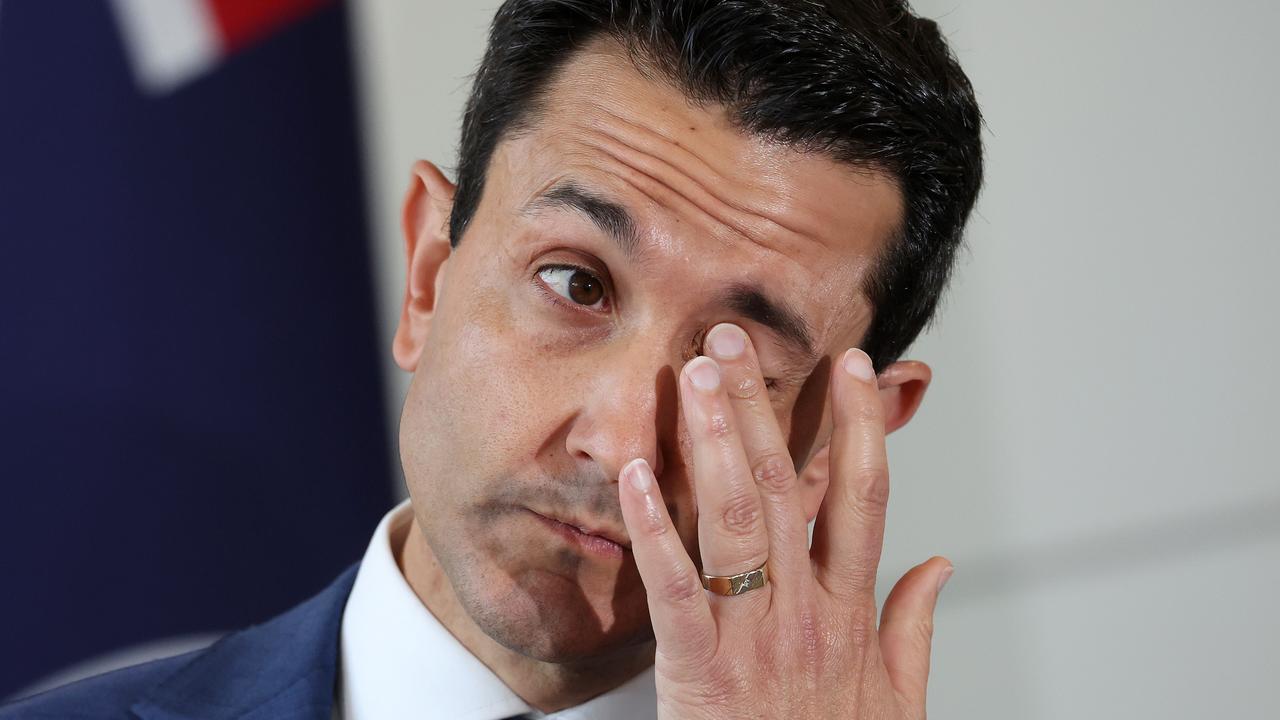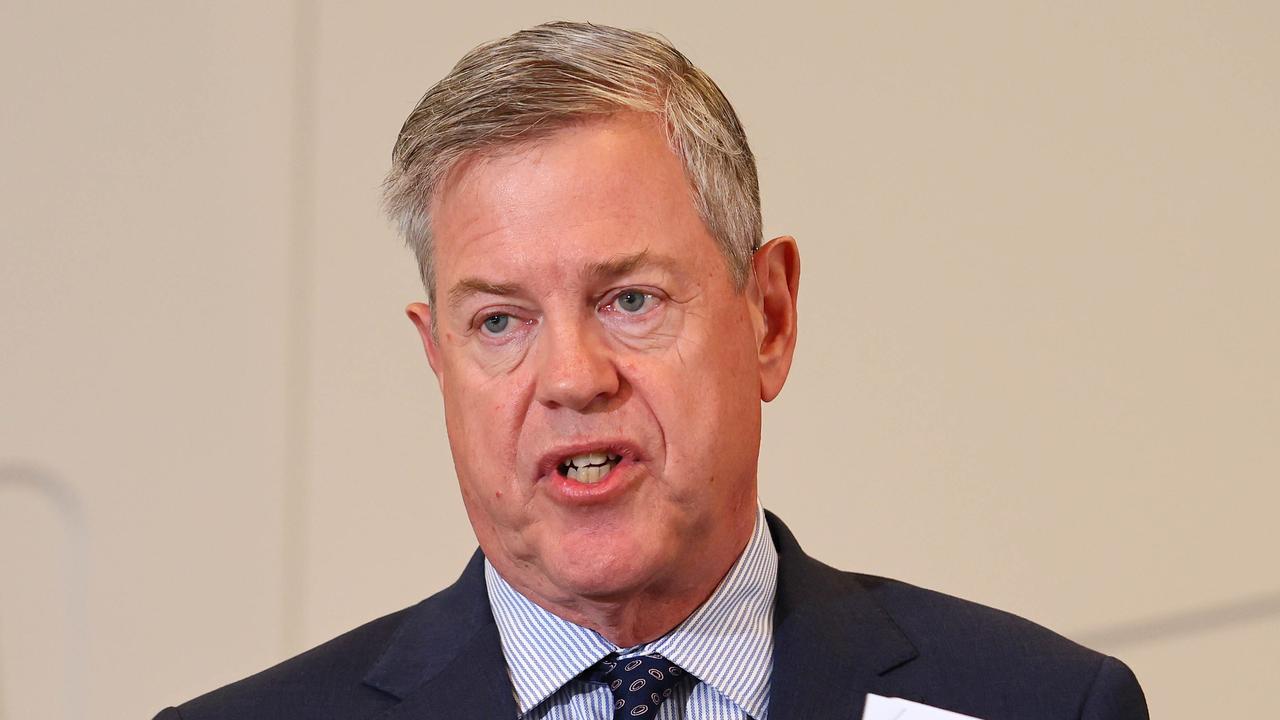Rated: Good, bad and ugly of Palaszczuk government in 2023
It’s been a tumultuous year for Annastacia Palaszczuk, marked by shocking poll results, a Cabinet reshuffle and questions over one of her most senior members.
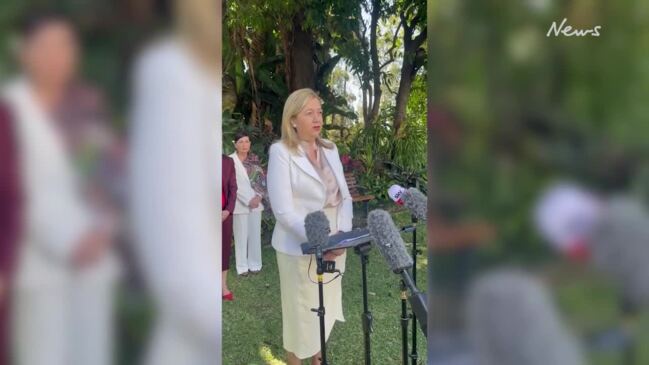
QLD Politics
Don't miss out on the headlines from QLD Politics. Followed categories will be added to My News.
It’s been a tumultuous year for the Palaszczuk government, marked by shocking opinion poll results, a Cabinet reshuffle amid a series across several portfolios and questions around the performance of one of its most senior members.
On the plus side, a funding deal for the 2032 Olympic and Paralympic Games was finally revealed, with the feds chiming in with funding for a new arena in Brisbane’s CBD.
Queensland also made giant steps in landmark treaty negotiations with First Nations groups, with a view to “righting persistent wrongs of the past”.
Read further for our assessment of the good, bad and ugly of politics under the Palaszczuk government over the past six months.

THE GOOD
Olympics: After what seemed like an age and even involved former Prime Minister Scott Morrison offering a rare weigh-in from the federal backbench, we finally landed an Olympic and Paralympic Games funding deal.
After months of speculation the $1bn figure for a redevelopment of the Gabba was born on the back of an envelope (or, as Auditor-General Brendan Worrall quoted – a press release), Premier Annastacia Palaszczuk revealed it would be a $2.7bn job – paid for by the state.
But in return, the feds will build the city a $2.5bn Brisbane Arena, not a terrible trade by anyone’s standards.
Overall the $7bn joint deal was a good win for Queensland.
Treaty: Landmark laws made it through parliament during the historic Cairns sitting of parliament, in a move triggering a major truth-telling inquiry that will investigate the massacre of Indigenous people, the impact of the Stolen Generation and of colonisation on First Nations and Torres Strait Islander peoples in Queensland.
The inquiry will hold truth-telling sessions and hearings and could lead to major financial reparations, health reforms and curriculum changes by the state government as part of landmark treaty negotiations with Queensland’s First Nations groups.
It’s a major step as the state government moves toward “righting persistent wrongs of the past”.
It should be noted the consultation process for the Treaty bill – about eight weeks – had been criticised for being rushed.
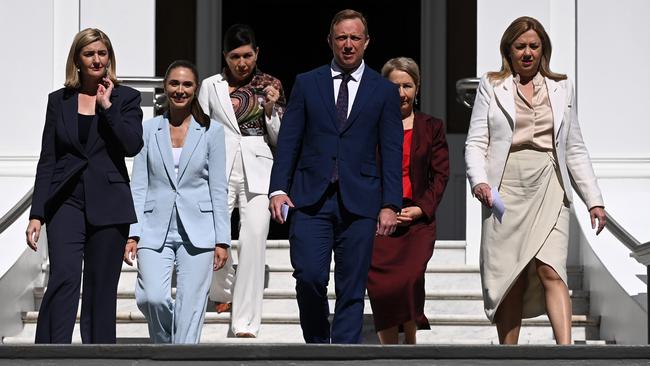
Cabinet reshuffle: It was the pressure release valve that had to be pulled.
Premier Annastacia Palaszczuk stood by her embattled Health Minister Yvette D’Ath for a long time, but the criticism and spot fires were ceaseless.
It extended across housing and youth justice too and in mid-May Ms Palaszczuk finally pushed the big red reshuffle button.
And it’s worked, at least in the immediate aftermath, with the government able to reset the mood and make it look like the agenda has had a refresh.
THE BAD
Cross River Rail: Transport Minister Mark Bailey ended months of speculation in March when he revealed Cross River Rail had been hit by $960m in cost overruns amid high and rising inflation.
But it was also revealed the start of services had been pushed back from the end of 2025 to the first quarter of 2026.
This was the latest in a series of hits for the Cross River Rail project, with the state government forced to confirm a month earlier that the first of dozens of locally manufactured trains would roll off the assembly line in 2026 – months after the new rail line is meant to open.
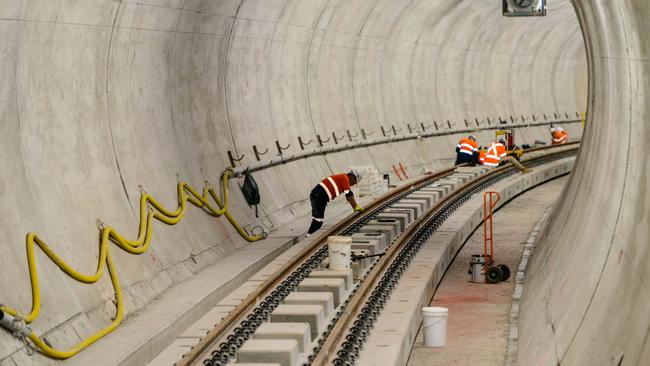
Maternity crisis: The management of maternity services has emerged as the most alarming failing amid Queensland’s health crisis, with reduced care forcing mothers to consider unimaginable decisions.
The Courier-Mail’s esteemed health reporter Jackie Sinnerton has revealed this year healthy Central Queensland mums were opting to give birth through caesarean section due to the Gladstone Hospital unit being on bypass.
Other mothers were left to give birth on the side of the road and some took the dangerous option to give birth at home without a doctor or midwife. Maternity services eventually returned to Gladstone but Weipa, Chinchilla, Cooktown and Biloela remain on bypass.

Youth crime crisis: With the Opposition breathing down their neck on the youth justice issue the government has hardly managed to put a foot right.
Labor will never present as “tough on crime” as the LNP, but the public became largely convinced not only was the government not listening and acting on the crisis, they had also caused it due to the unwinding of laws.
Eventually the government folded and introduced breach of bail after more than a year of hounding by the LNP, but it appeared too little, too late.
As more shocking incidents unfolded across the state the Premier made a major misstep in not fronting a community crime forum in Toowoomba, with right to information documents also coming to light which showed the government’s flagship 10-point plan media release was being edited right up until a press conference.
In the end Leanne Linard was punted from the portfolio, and new Minister Di Farmer has been blessed with a relatively quiet first month.
THE UGLY
Curtis Pitt: The spectacle of the Speaker crisis has been an unpleasant one to watch, with the past week seeing MPs on both sides saying it is time for Curtis Pitt to be replaced.
Mr Pitt’s behaviour was first thrust into the spotlight when he was late to the first day of regional parliament in his home city of Cairns, and last week again took leave after slurring through parliament – something he blamed on back pain.
Having been open about his struggles with mental illness, a recent divorce and other medical issues the Premier has so far tread carefully on the issue, but this is one she will need to handle not only with grace but strength – given those pesky backbench rumblings.
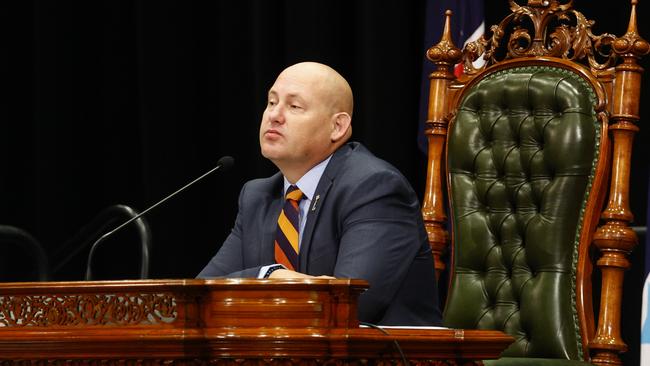
‘Standard response’ debacle: It was the accidental “reply all” which lit a firestorm under the Palaszczuk’s government’s response to the youth crime crisis – and led to a new attack slogan with it.
When someone in the Premier’s office accidentally replied to a victim of crime with “standard response please” (along with a host of other people in the email chain, including members of the Opposition and cross bench), it was only a matter of time before it became an issue the Premier had to address.
She said she didn’t even know what the “standard response” was, but it gave the public a rare (and ugly) reality check on the inner-workings of how politicians deal with public complaints.
Jim Madden: Labor MP Jim Madden was embroiled in allegations of bullying and claims of improperly using taxpayer funds before eventually announcing he will relinquish his seat at the next state election.
The Ipswich West MP was cleared in April of allegations of improperly using taxpayer funds and was also cleared of bullying a female electorate office staffer after an investigation by Queensland Labor.
But two more people came forward, alleging in reports by The Australian they had been manipulated or touched inappropriately by the MP.
Mr Madden made a point of noting in his resignation speech to parliament in April he had made the decision “some time ago” but vacating the seat avoids a headache for the Premier as she sets out to boost female Labor MPs to satisfy the party’s gender targets.
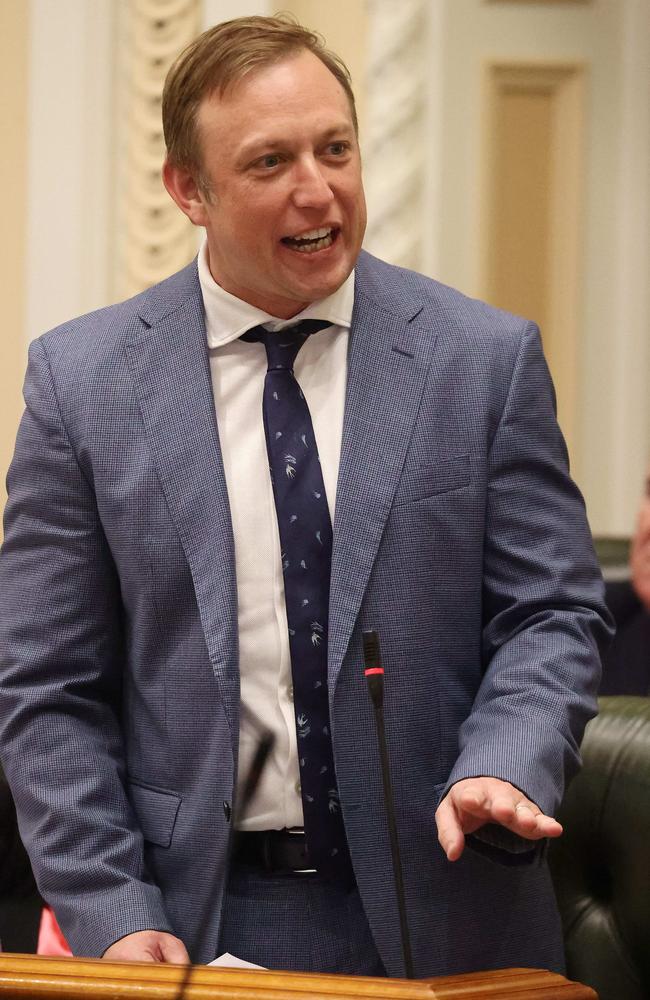
Miles vs the Judiciary: Deputy Premier Steven Miles’ explosive attack against the judiciary during a flashpoint of the state’s youth crime crisis earlier this year hit too close to the bone, sparking mass distraction for the government.
A Townsville Magistrate’s decision in February to release 13 children on bail in a single day pushed Mr Miles to accuse her of doing it as a “media stunt” and that she had put “the community of Townsville in danger”.
The legal community swiftly attacked Mr Miles’s comments for being in “direct and egregious contempt” of the court process and a desecration of the tenet of the separation of powers. Many senior party members distanced themselves from his comments, including Attorney-General Shannon Fentiman and Treasurer Cameron Dick.


